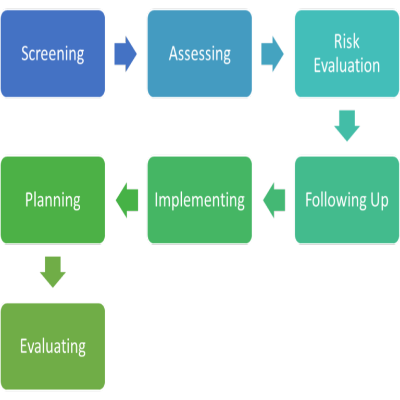In any given scenario, conducting a comprehensive case management assessment plays a crucial role in identifying and addressing the needs of individuals. This article provides a detailed analysis of a practical case management assessment example, designed to ensure effective solutions for various situations. By examining the key components and steps involved in the assessment process, professionals in the field can gain valuable insights into optimizing their case management approaches.
Understanding Case Management Assessment
Case management assessment serves as a vital tool for professionals seeking to understand and cater to the particular circumstances of individuals or groups. Its objective is to evaluate the strengths and challenges faced by individuals while identifying available resources that can provide support. When carried out effectively, this assessment assists in creating personalized care plans and interventions tailored to meet specific needs.
Key Components of Case Management Assessment
- Gathering Information: The initial step in the case management assessment process involves gathering pertinent information about the individual or group. This includes collecting demographic details, medical history, educational background, and any relevant social or environmental factors influencing their situation.
- Identifying Needs: Based on the gathered information, the key needs and concerns of the individual are identified. These needs vary from person to person and may include medical care, housing, educational support, mental health services, or financial assistance.
- Assessing Strengths: In addition to identifying needs, it is equally important to recognize the strengths and abilities of individuals. Evaluating their resilience, skills, and support networks ensures that case managers capitalize on these strengths while addressing the identified needs.
- Establishing Goals: Setting realistic and measurable goals is crucial for successful case management assessment. These goals should reflect the aspirations and desires of the individual while considering their unique circumstances. Goal-setting helps create a roadmap to guide interventions and monitor progress.
- Designing Interventions: Once the needs and goals have been established, case managers develop a comprehensive plan of action. This involves exploring available resources, coordinating services, and liaising with relevant professionals or agencies to deliver the necessary support services.

Case Management Assessment Example: A Circumstance-Based Approach
Consider the hypothetical case of a teenage individual struggling with substance abuse and high-risk behaviors. To conduct a case management assessment, the following steps can be followed using our case management assessment example:
- Gathering Information: Collect demographic data, including age, gender, and cultural background. Additionally, gather data regarding the history and severity of substance abuse, social environment, family dynamics, education, employment status, and any relevant legal issues.
- Identifying Needs: Based on the gathered information, it is evident the individual requires substance abuse treatment, mental health services, educational support, and assistance in resolving legal matters.
- Assessing Strengths: Acknowledge the individual’s determination to seek help, existing support from family or friends, and any transferable skills, such as communication or problem-solving abilities.
- Establishing Goals: Develop goals that encompass achieving sobriety, addressing underlying mental health concerns, completing education, and resolving legal issues.
- Designing Interventions: Collaborate with the individual, their family, and relevant professionals to create a tailored plan. This may include referral to a substance abuse treatment facility, enrolling in counseling sessions, accessing educational resources, and engaging with legal aid services.
Conclusion
By leveraging a case management assessment example, professionals can ensure a comprehensive understanding of individuals’ needs while capitalizing on their strengths. It is essential to approach each case uniquely, allowing for flexible and adaptive interventions that support individuals in achieving their goals. Employing tried and tested practices along with a client-centered approach, successful case management assessments can effectively transform lives and foster positive outcomes.











